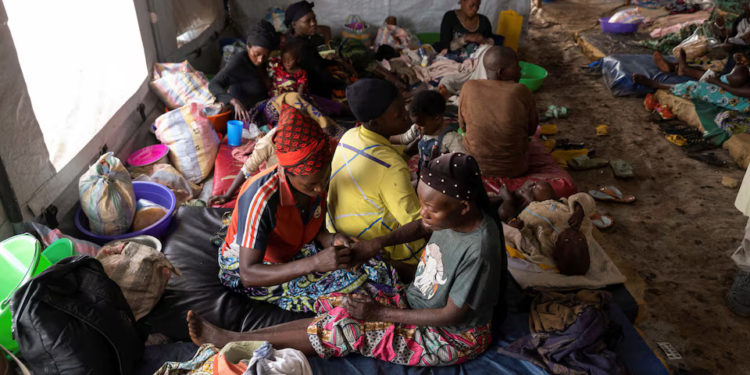The rise in the number of confirmed Mpox cases has sparked new debate and fear that Uganda could see a return of the preventive measures including physical distancing and lockdown to curb further transmission. By Tuesday, Uganda had recorded ten cases from different parts of the country having registered the first two cases in late July.
While these were imported cases from the neighboring DR Congo where the disease is rapidly spreading and has claimed hundreds, Dr. Henry Kyobe the Incident Commander at the Ministry of Health says newly confirmed cases have been picked from all regions in the country including Kampala, Mayuge and Elegu and that their contacts cannot be traced. He says that for all the new cases, none could be traced to individuals who have been out of the country.
He notes that they are leveraging on the infrastructure put in place to curb COVID-19 and the Ebola hemorrhagic fever outbreak in Mubende to keep the disease in check and have so far collected over 200 samples from suspected cases, which have been tested at the Uganda Virus Research Institute, the National Public Health Laboratory in Butabika and the mobile Laboratories in Bwera, Kasese district.
Uganda has previously managed to quickly and successfully contain several cross-border public health emergencies including the Ebola outbreak, something that healthcare managers have done by partly instituting extreme measures such as lockdowns and border closures. For instance, Uganda is one of the countries that had the longest school closures due to COVID-19 globally.
Due to such a history, there is rising concern by sections of the public fearing that the country could institute such mandates once again to curb the disease which experts say has slow recovery even though the death rate is also low. Kyobe however says such lockdowns will not happen but rather they are using an approach of compassion and affirms that interventions that spark stigma will not be used as such could lead people into hiding further spreading infection to their contacts.
Speaking about measures that the city is instituting to curb infection, Dr Daniel Okello the Director of Public Health at Kampala Capital City Authority urged people to maintain proper hand hygiene and noted that they have no plans of instituting lockdowns as these may not be very efficient in curbing transmission. He adds that there are antivirals and a vaccine that can come in handy if infections spiral.
For him, lockdowns were instituted because there were no ready interventions to immediately use with COVID-19 which was spreading globally for the first time. On his part, Thomson Odoi a public health professional based at Baylor Uganda called for the provision of more information to people involved in public transport worrying that they have observed a lot of people from Congo using public transport from Hoima and Fort Portal coming to Kampala.
Meanwhile, from the majority of the 10 cases that have so far been confirmed, Kyobe says the infection is linked to sexual transmission as lesions are seen in the genital areas. He says this is consistent with what is being seen elsewhere with mainly men who have sex with men (MSM) and sex workers being the most affected.
BY URN

